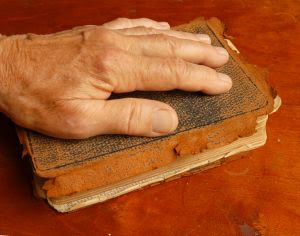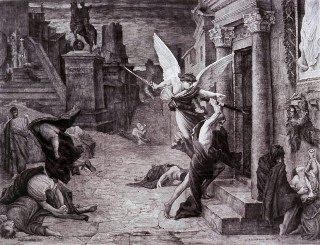Eng 48A
Of Plymouth Plantation by William Bradford

He was indeed a person of a well-tempered spirit, or else it had been scarce possible for him to have kept the affairs of Plymouth in so good a temper for thirty-seven years together... The leader of a people in a wilderness had need be a Moses; and if a Moses had not led the people of Plymouth Colony, when this worthy person was their governour, the people had never with so much unanimity and importunity still called him to lead them. -- Cotton Mather

"Being thus arrived in a good harbor and brought safe to land, they fell upon their knees and blessed the God of heaven, who had brought them over the vast and furious ocean, and delivered them from all the perils and miseries thereof again to set their feet on the firm and stable earth, their proper element." (norton 115)
In the book Of Plymouth Plantation, William Bradford describes all the difficulty many puritans suffered, but because they believe that everything that was happening was God’ will they accept the events with pleasure.

Most of them believe that everything was happening for a reason and they all should learn from the pain and grown stronger. When they made to Cape Harbor safely, Puritans believed that it was God helping them to overcome the obstacles. Bradford also explains that many people were dying from horrible diseases, but nobody was panicking because that was just what God wanted from them.

















